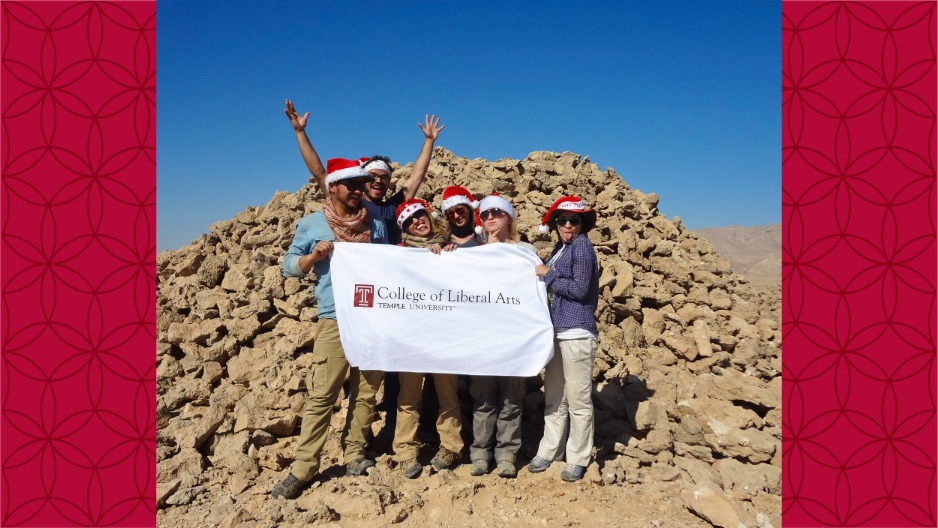Long before she ever found herself excavating 5,000-year-old tombs in the deserts of Oman, Temple Anthropology Professor Kimberly Williams remembers being a first-generation college student, struggling to make ends meet. That’s why today, her work in archaeology isn’t just about uncovering ancient pasts—it’s also about opening doors for future generations.
For the past two years, Dr. Williams, who also serves as chair of the Anthropology Department, has contributed a portion of her monthly paycheck to a small fund that helps one student gain crucial fieldwork experience annually. “Something very central to any kind of anthropology work, but especially archeology, is that you need to go out, be part of a different community and a different culture, and put the things you learn into practice,” explains Williams. “For our undergraduate students interested in archeology, that usually means going to a field school.”
Archaeological field schools provide students with hands-on experience working in the field and the laboratory. It’s a crucial experience, but one that can be prohibitively expensive, costing thousands of dollars. “When I was an undergraduate student, I couldn’t afford anything like that if not for scholarships,” says Williams, “and without field experience, students might struggle looking for a job or applying to grad school. So, for me, the department needed to have one more way to provide this kind of funding.”
While Williams refers to her contributions as “modest,” they add up to $1,000-2,000 grant—enough to help a student afford a plane ticket, pay for housing, or cover a portion of their field school tuition.
“I remember paying my way through college. I remember having to find money to go places and pursue opportunities that didn’t seem worthwhile to most people. I remember the feeling of not having a safety net,” recalls Williams. “So, I hope that this helps provide that safety net.”
Paycheck contributions aren’t the only way that Williams invests in her students’ futures. Williams has been excavating mortuary monuments in Oman since 2008—work that earned her a Fulbright in 2015 and led to a groundbreaking discovery in 2023. For a number of those years, Williams invited a select few undergraduate students to join and assist her in the field. The trip offered students not only valuable professional experience but also an eye-opening glimpse at life in the Middle East. “I wouldn't be where I am without the opportunities, including going to Oman, that Kim provided me,” says Alyson Caine, CLA ‘12. Caine was the first student Williams brought to Oman; she’s since earned a Ph.D. and is now an adjunct professor at James Madison University. “That's something that has really influenced me as a teacher today. I strive to connect undergrads with research or fieldwork opportunities. Getting that experience is so important, and I will forever be grateful to Kim for the exposure to the field she gave me.”
While Williams’ personal experience informs her giving, she recognizes that this level of support, this drive to kick down doors for students who are hungry and more than ready to meet the moment, is simply what Temple University does.
“Temple is a place of social mobility for a lot of students. Temple is a school of access and equity,” says Williams. “We are not only providing an accessible education to so many people, but we’re taking them to other places in the world. Sometimes that little bit of money, even if it’s not enough to cover costs for a week, communicates that you can be a part of this world too, and that you are welcome. That stuff matters.”

